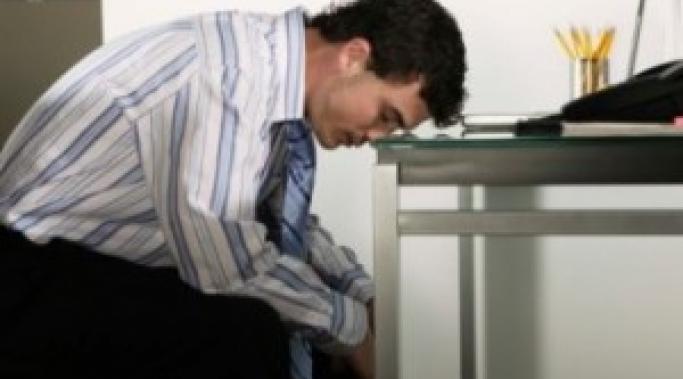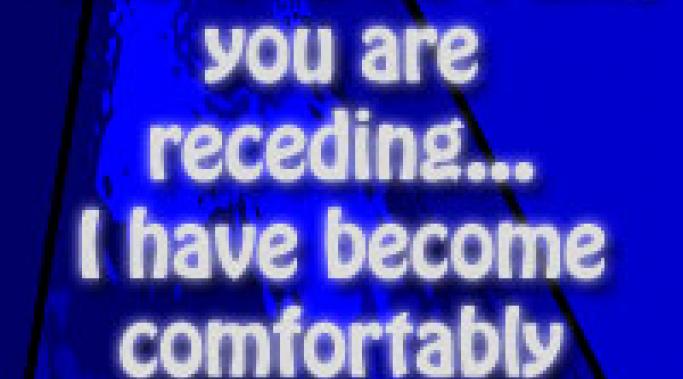Blogs
Have you heard this one already?
Three clinically depressed high-jumpers walk into a bar.
They lower it.
I’m kidding of course.
Then again, I’m not kidding, (as always), because if there is anything that will help today’s mentally ill individual survive the three-ring-circus of psychological torment and emotional Armageddon known by that deceptively sweet euphemism – the holidays – it is lowered expectations.
Why? With every layer of tinsel, every rehashed Christmas chestnut mangled by Beyoncé, every eggnog-infused martini, every promise of no money down and no payments for the first seventeen months, every drug-addled midnight greeter at Walmart scratching his most recent tattoo, every ill-considered fax at every office party, and every other cliché of Christmas cacophony and tintinnabulation comes the rising tide of truly ho-ho-horrible inevitability – the hopes, the joys, the fears of all the years, reindeer and pain dear – that Grinch-ish thief of all that is merry; expectations.
Once a person has been diagnosed with a mental illness--is being treated for it--and moving forward in their recovery, life is not suddenly peaches and cream. For many of us, myself included, we still often live with depression on a daily basis.
When I look back on my active addiction, the biggest barrier to changing to a lifestyle of recovery was me. Years of self-abuse led to a pattern of negative thinking that was hard to overcome. Much of this negative thinking was centered on distorted thinking patterns that had been formed as a result of experiences I had growing up.
You’d let them take an ice pick to your brain if you thought it would help.
Bipolar disorder impacts different people differently. For some people, bipolar disorder is immanently treatable. These people find doctors, therapy and medication and walk off into the sunset with few bipolar symptoms left with which to contend. These people lead the same lives as everyone else and besides (likely) controlling certain lifestyle factor that contribute to stability, they don’t have to think about bipolar disorder on a daily basis.
Then there are the people who are more affected by the illness. These are people for whom treatment partially works. They likely find doctors, therapy and medication too, but in spite of best efforts, they live with bipolar symptoms every day. These people might live your ordinary life or might live a life that is more affected by the illness, such as one where they can only work part-time.
And then there are the people that are severely affected by bipolar. Even with treatment these people tend to have intractable moods and likely can’t work because of them. These people do not live average lives. They live lives dictated by the illness and the treatment. These people are in pain every day.
And it’s only chance that places you in one of those three groups.
If someone at a job interview explains a two year gap in their resume by mentioning chemotherapy, they will likely be heralded as a survivor and their chances at the job typically would not be affected. But if the same person, with the exact same qualifications and manner of interacting explains a gap and mentions a psychiatric hospitalization, things may be a little different.
I'm both happy and sad right now.
Happy because I have landed my dream job. Sad because that means I will no longer be writing this blog.
It's been a tumultuous, frustrating, and yet rewarding two years since I started writing Surviving ED.
Christie Stewart
Recently, I was asked to address the topic of self-injury and sexual intimacy. More specifically -- being ashamed of your body due to self injury cuts, burns or scars and having to shy away from intimate relationships, or face possible rejection by a sexual partner should they see them. In this blog, I will address ways to deal with this type of situation.
I feel responsible for teaching my oldest son that it is all right to act out physically when things don't go his way. I allowed him to watch his father and I perpetuate the cycle of violence in our home. I didn't walk away from my marriage as soon as I now wish I could have. My son learned that when a grown-up man doesn't get his way, it is normal for him to physically intimidate everyone around him until they submit to his wishes. Then, it is okay to forget it happened without an apology or discussion so long as some of his behaviors improve. So long as he turns on the charm and pretends to go along, there is no need for further conversation or remorse.
The other day, an argument with my son reminded me that doing what is right makes me feel as scared as doing what is normal makes me feel numb. The altercation began with Marc's violent push of a full coffee cup that spilled across the table, instantly dripping into the laps of all who live in our home (except for Marc's). The four of us immediately jumped up from the table in surprise; I instinctively ran to the kitchen to grab a towel to clean up the mess.
Overcoming PTSD requires your brain to reconsolidate memories and learning experiences. This means that it must find a way to erase the old learning experience gained through trauma and put in place a new one that is associated with a more calm, peaceful and empowered experience.
Not everyone feels warmth and joy during the holidays. More Than Borderline's Becky Oberg talks about how to handle stress and depression during the holiday season. \



![MP900321197[1]](/sites/default/files/styles/blog_listing/public/uploads/2012/12/MP9003211971.jpg?itok=MBDqb95X)




